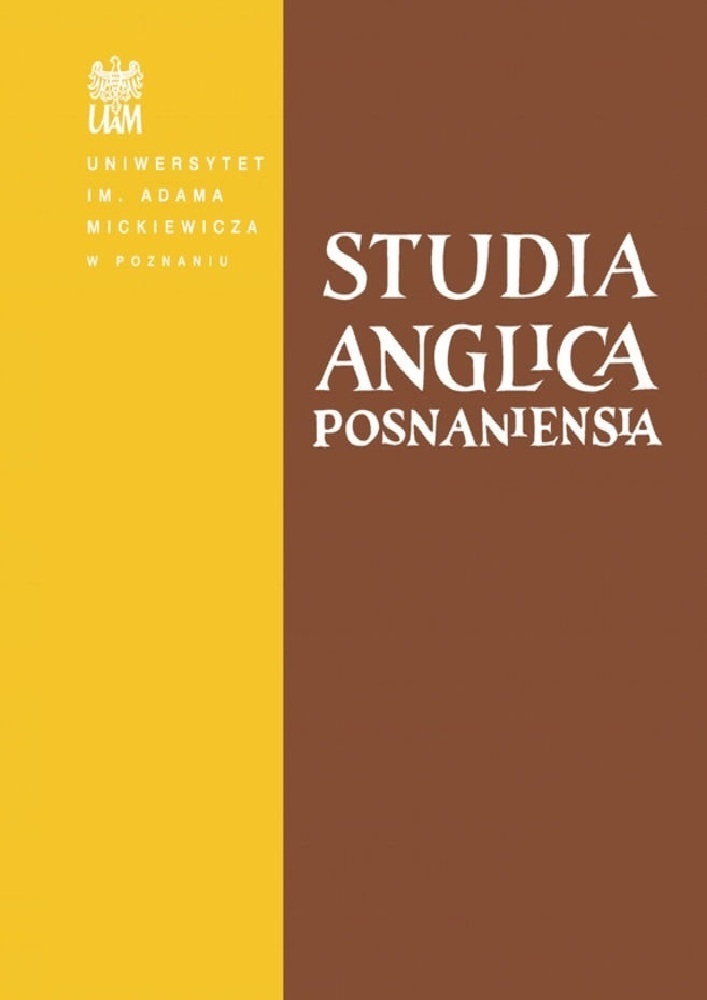Abstract
Over the last decade or so, David Lodge has become not only a reader but also an avid practitioner of “fact-based writing” - be it the biographical novel (The Master of 2004 and A Man of Parts 2011), the autobiographical novel (Deaf Sentence of 2008), the biographical essay (Lives in Writing of 2014) and - finally - a proper autobiography (Quite a Good Time to Be Born of 2015). The aim of this paper is to analyse Lodge’s recent turn to life narratives and, in particular, his autobiographical story of 2015; and, consequently, to address the following questions: Does Lodge’s memoir offer “an experiment in autobiography” (to quote H.G. Wells, one of Lodge’s favourites), or remain a conventional life story immune to the tenets of contemporary life writing? Is it the work of a (self- )historian, or a novelist? Does it belong to the “regime of truth,” or is it the product of memory? Finally, is it, indeed, a memoir (as its subtitle claims), or a specimen of self-biography? The paper will show special interest in the work’s generic characteristics and will offer an attempt to locate Quite a Good Time to Be Born on the map of contemporary life writing practices.
References
Lodge, David. 1977. The modes of modern writing. Ithaca, NY: Cornell University Press.
Lodge, David. 2004. Author, author. London: Secker and Warburg.
Lodge, David. 2007. The year of Henry James: The story of a novel. London: Penguin Book.
Lodge, David. 2015a. Quite a good time to be born. A memoir: 1935-1975. London: Harvill Secker.
Lodge, David. 2015b. Lives in writing. London: Vintage Books.
Amis, Martin. 2001. Experience. A memoir. New York: Vintage International.
Anderson, Linda. 2011. Autobiography. London & New York: Routledge.
Athill, Diana. 2009. Somewhere towards the end. A memoir. New York & London: W.W. Norton & Company.
Barthes, Roland. 2003. The death of the author. Trans. Stephen Heath. In Seán Burke (ed.), Authorship: from Plato to the postmodern. A reader, 125-130. Edinburgh: Edinburgh University Press.
Bergonzi, Bernard. 1995. David Lodge. Tavistock: Northcote House.
Coetzee, J.M. 2007. Diary of a Bad Year. London: Harvill Secker.
Collini, Stefan. 2015. Whiskey out of teacups. London Review of Books 37(4). 13-15.
Couser, G. Thomas. 2012. Memoir. An introduction. Oxford: Oxford University Press.
Derrida, Jacques. 1980. The law of genre. Trans. A. Ronell. Glyph 7. 202-229.
Genette, Gérard. Paratexts: Thresholds of interpretation. Trans. Jane E. Lewin. Cambridge: Cambridge University Press.
Gusdorf, Georges. Conditions and limits of autobiography. Trans. James Olney. In James Olney (ed.), Autobiography. Essays theoretical and critical, 28-48. Princeton, New Jersey: Princeton University Press.
Kusek, Robert. 2013. Biographical fiction vs. fictionalised biography in D. Lodge’s A man of parts. In Alicja Witalisz (ed.), Papers on language, culture and literature 4, 45-54. Krosno: PWSZ.
Larson, Thomas. 2007. The memoir and the memoirist: Reading and writing personal narrative. Athens, Ohio: University of Ohio Press.
Lee, Hermione. 2009. Biography: A very short introduction. Oxford: Oxford University Press.
Lejeune, Philippe. 2010. L’autobiographie en France. Paris: Armand Colin.
Lessing, Doris. 1995. Under my skin: volume one of my autobiography, to 1949. New York: HarperPerennial.
Marasco, Gabriele (ed.). 2011. Political autobiographies and memoirs in antiquity. Leiden: Brill.
Martin, Bruce K. 1999. David Lodge. Woodbridge, CT: Twayne.
Miller, Nancy K. 1996. Bequest and betrayal: Memoirs of a parent’s death. Bloomington: Indiana University Press.
Morace, Robert A. 1989. The dialogic novels of Malcolm Bradbury and David Lodge. Carbondale, IL: Southern Illinois University Press.
Perkin, J. Russel. 2014. David Lodge and the tradition of the modern novel. Montreal & Kingston: McGill-Queen’s Press.
Rak, Julia. 2004. Are memoirs autobiography? A consideration of genre and public identity. Genre 36. 305-326.
Said, Edward. 2007. On late style. Music and literature against the grain. New York: Vintage Books.
Sartre, Jean-Paul. 1968. Search for a method. Trans. H.E. Barnes. New York: Vintage Books.
Smith, Sidonie and Julia Watson. 2010. Reading autobiography. A guide for interpreting life narratives. Minneapolis & London: University of Minnesota Press.
Taylor, D.J. 2008. I beg your pardon? The Guardian 3 May. http://www.theguardian.com/books/2008/may/03/fiction.davidlodge (accessed on 21 August 2015).
Tomaševskij, Boris. 2003. Literature and biography. Trans. Herbert Eagle. In Seán Burke (ed.), Authorship: from Plato to the postmodern. A reader, 81-89. Edinburgh: Edinburgh University Press.
Vice, Sue. 2014. Textual deceptions: False memoirs and literary hoaxes in the contemporary era. Edinburgh: Edinburgh University Press.
Vidal, Gore. 1995. Palimpsest: A memoir. London: Deutsch.
Wells, H.G. 1934. Experiment in autobiography: Discoveries and conclusions of a very ordinary brain (since 1866). New York: The Macmillan Company.
White, Hayden. 2008. The historical event. Differences: A Journal of Feminist Cultural Studies 19(2). 9-34.
Wilde, Oscar. 2008. Plays, prose writings and poems. Hebden Bridge: Pomona Press.
Yagoda, Ben. 2010. Memoir. A history. New York: Riverhead Books.
